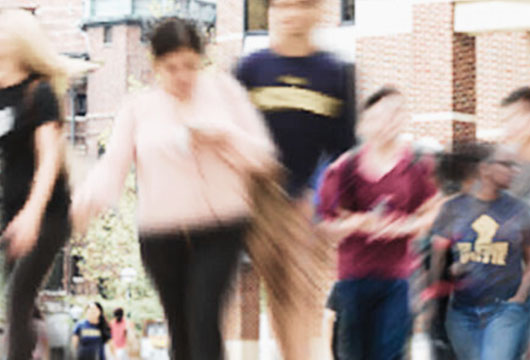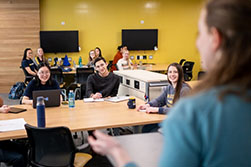 We wish we did not have so many occasions to provide guidance to instructors on teaching in tumultuous times. The campus community is beginning yet another new term amidst a range of distressing events: from hate-based violence in the U.S. and around the world (including but certainly not limited to a series of anti-Semitic attacks in New York, a church shooting in Texas, and violence against Muslims in India), to environmental disasters in many parts of the world, to escalating conflict between the US and Iran. As we return from the break to the regular work of teaching and learning, many people in our community are feeling threatened and terrorized, grieving deeply, experiencing intense anger, or fighting a sense of despair at a swelling of hatred and violence in our nation and world. CRLT regularly re-posts the guidance below because it is important to remember that these emotions enter our classrooms, studios, and labs, and they can understandably and significantly affect students’ ability to focus on their learning and work with peers in our intellectual community.
We wish we did not have so many occasions to provide guidance to instructors on teaching in tumultuous times. The campus community is beginning yet another new term amidst a range of distressing events: from hate-based violence in the U.S. and around the world (including but certainly not limited to a series of anti-Semitic attacks in New York, a church shooting in Texas, and violence against Muslims in India), to environmental disasters in many parts of the world, to escalating conflict between the US and Iran. As we return from the break to the regular work of teaching and learning, many people in our community are feeling threatened and terrorized, grieving deeply, experiencing intense anger, or fighting a sense of despair at a swelling of hatred and violence in our nation and world. CRLT regularly re-posts the guidance below because it is important to remember that these emotions enter our classrooms, studios, and labs, and they can understandably and significantly affect students’ ability to focus on their learning and work with peers in our intellectual community.
Such times call for careful thought about how we cultivate learning environments where all students—and particularly students who are members of groups that have been targeted by hate—are treated with compassion and feel themselves to be members of a campus community that actively resists hatred and violence. Faculty and GSIs are often a primary face of the institution for students, so instructors play an important role in creating that sense of community.
As instructors make decisions about whether and how to acknowledge such events and their impacts in their classes, we offer a few insights that many have found helpful in guiding their choices:
- Research on student experience in the wake of mass trauma suggests that, following violence or disaster, even a small gesture of recognition from instructors is beneficial to students’ ability to learn and their general sense of well-being on campus.
- If you do choose to open a conversation about distressing events, it is important to frame and facilitate deliberately: e.g., establish clear goals for the discussion, set guidelines for respectful participation that acknowledge a range of experiences in the room, and find ways to include all voices without forcing anyone to participate.
- It’s helpful for instructors to communicate the importance of students’ attention to their well-being during stressful times and point them to a range of campus support resources. This can include the “Well-being” tool embedded in every course’s Canvas site, the CAPS office (including this online guidance for coping with hate incidents), or campus offices and student organizations focusing on supporting and creating community among specific student populations (for instance, Hillel, the Muslim Students' Association and MESA).
- Attend to your own self-care needs. Faculty and GSIs are of course among those targeted by anti-Semitism, Islamophobia, racism, xenophobia, and other forms of hatred and violence. It’s important for everyone in such positions to connect to networks of support and practice the necessary self-care to continue contributing to this diverse and vibrant campus community.
- As part of our Winter Seminar Series, CRLT is offering several programs that can help instructors think through ways to teach inclusively, with particular attention to the range of ways that students can be affected by ongoing social tumult and violence. These workshops include Teaching for Equity and Inclusion, Making the Most of Hot Moments in the Classroom, Principles and Practices of Anti-Racist Pedagogy, and Framing and Facilitating High Stakes Discussions.
Further practices and resources related to all of the suggestions above can be found on this page. As always, CRLT consultants are available to discuss options and strategies. You can call our Inclusive Teaching Hotline during business hours (734-764-0505), contact us by email (crlt@umich.edu), or make an appointment online.
Photo by Frederik Vanrenterghem (Flickr)
- Log in to post comments
- 748 views






